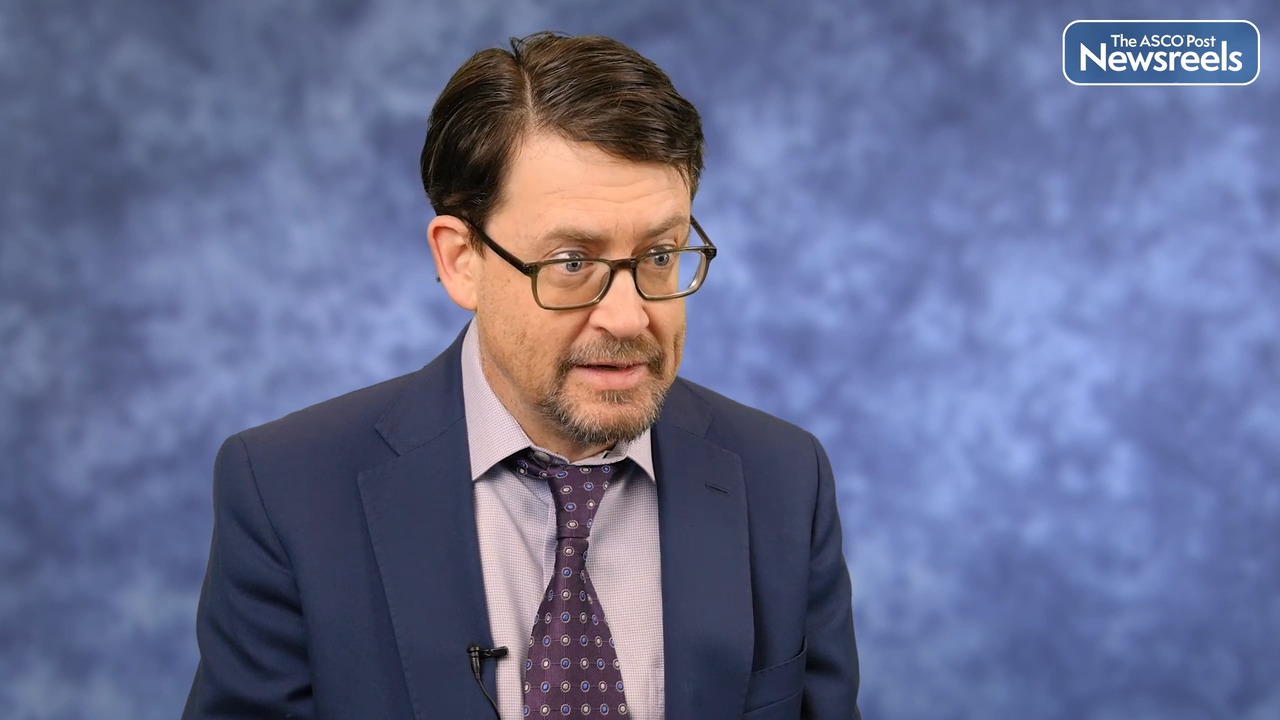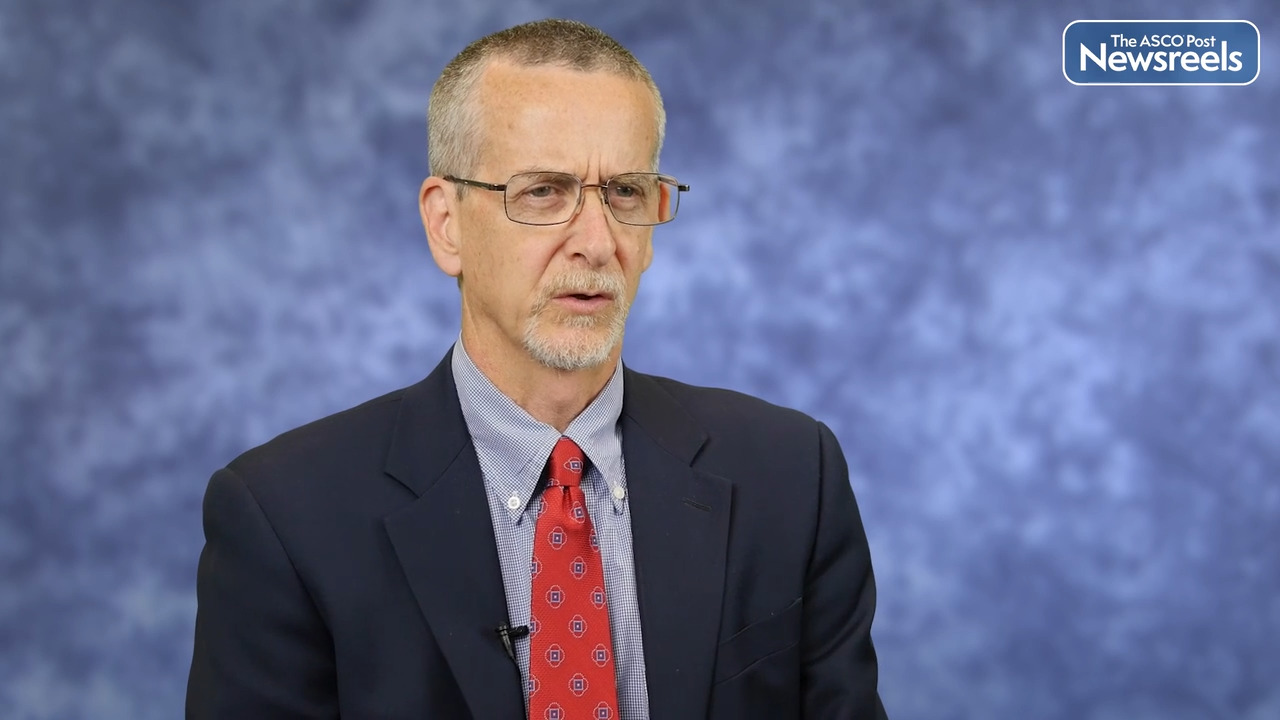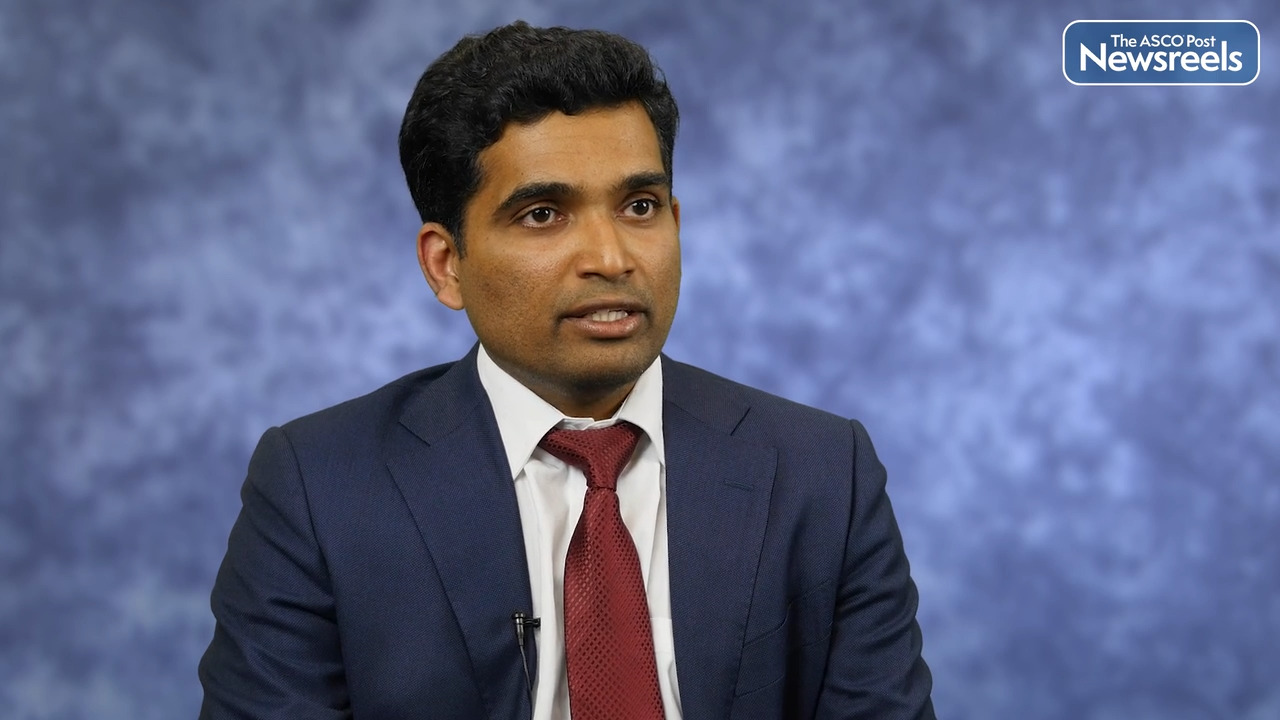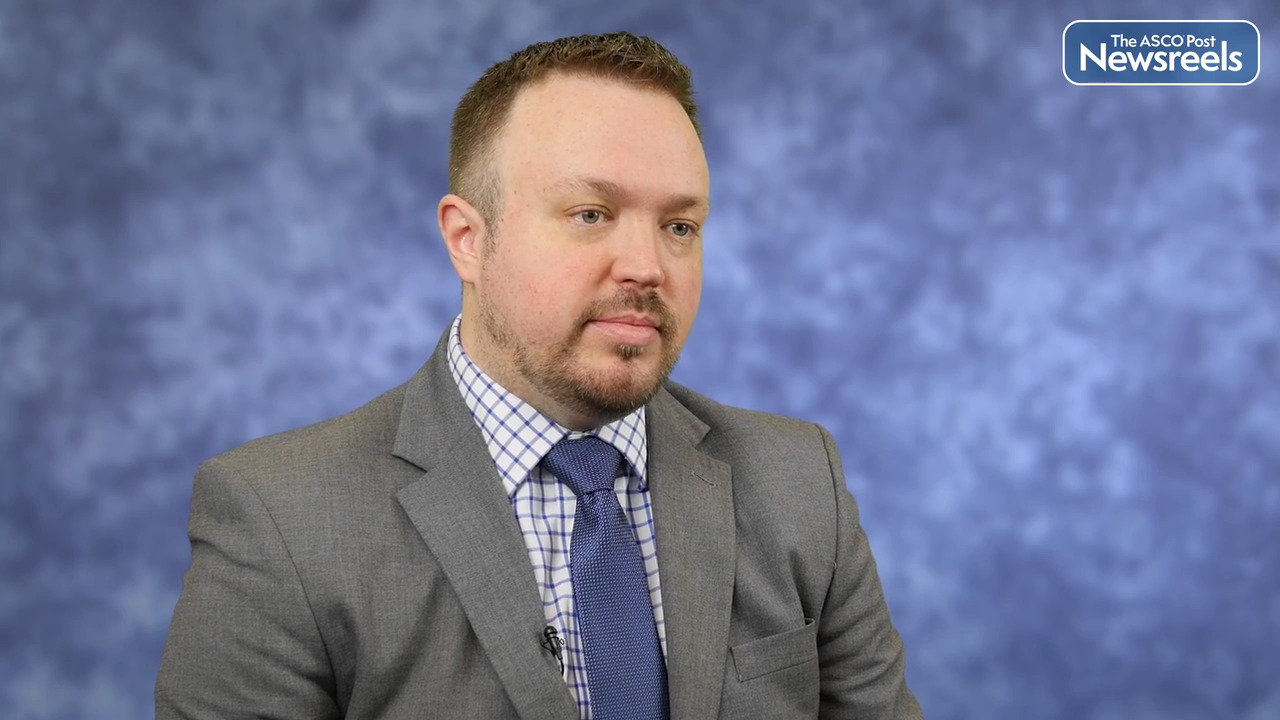Deborah M. Stephens, DO, on CLL/SLL: NCCN Clinical Practice Guidelines in Oncology® Update
NCCN 2023 Annual Conference
Deborah M. Stephens, DO, of the Huntsman Cancer Institute at the University of Utah, discusses NCCN’s updates to treatment recommendations for patients with chronic lymphocytic leukemia/small lymphocytic lymphoma. Dr. Stephens details the key factors in selecting front-line and subsequent therapies, including IGHV status, del(17p)/TP53 mutation status, age, comorbidities, and resistance mutations.
Transcript
Disclaimer: This video transcript has not been proofread or edited and may contain errors.
Deborah M. Stephens:
In the presentation, I reviewed treatment options and how to select these options in the frontline and subsequent treatment settings for patients with CLL. In the frontline setting, critical decision points are based on the molecular features of IGHV status, TP53 mutation status, and presence or absence of deletion 17p and medical comorbidities.
These decision points are still critical in the subsequent treatment setting. However, this setting adds some key dynamics of evaluating prior lines of therapy and understanding if the patient was resistant or intolerant to the prior therapy. Notably, the regimens are similar in the frontline and subsequent treatment setting, including second-generation BTK inhibitors of acalabrutinib and zanubrutinib, or the Bcl-2 inhibitor Venetoclax plus CD20, a monoclonal antibody.
The patients with CLL who may be appropriate for Venetoclax-based therapies are those with a history of uncontrolled atrial fibrillation or hypertension, or patients who have need for systemic anticoagulation, or those who desire time-limited therapy.
The patients with CLL who may be appropriate for BTK inhibitor therapy are those with renal insufficiency, extensive infections excluding aspergillosis, or those without access to facilities to monitor for tumorlysis syndrome. In the NCCN guidelines last year, the BTK inhibitor ibrutinib was moved to the other recommended category from the preferred category. This is due to the results of two large phase-three studies the elevate RR and the Alpine study, which compared acalabrutinib or zanubrutinib head-to-head with ibrutinib in patients with relapsed CLL.
In these trials, acalabrutinib and zanubrutinib demonstrated equal or better efficacy and less toxicity, making the second-generation BTK inhibitors the preferred choice. In patients who have developed resistance to BTK inhibitor therapy, a novel BTK inhibitor called pertobrutinib is emerging as an efficacious option with minimal toxicity. This drug has not yet been approved for CLL, but it was approved for mantle cell lymphoma. In summary, there are multiple highly effective therapies for patients with CLL, and continued refinement of the active drugs has resulted in improved toxicity and hopefully better quality of life for the patients with chronic lymphocytic leukemia.
The ASCO Post Staff
Michael K. Gibson, MD, PhD, of Vanderbilt-Ingram Cancer Center, discusses the importance of developing additional treatment strategies for patients with advanced or metastatic esophageal squamous cell carcinoma and describes the role of immune checkpoint inhibitors. Dr. Gibson also reviews the available evidence on the use of nivolumab in this patient population.
Natalie Moryl, MD, of Memorial Sloan Kettering Cancer Center, discusses severe cancer pain, a medical emergency that should be addressed with immediate intervention. The treatment plan, Dr. Moryl says, should include making a pain diagnosis; addressing reversible causes of pain such as spinal cord compression, fracture, or obstruction; selecting, titrating, and rotating opioids and co-analgesics; and routine screening for risks of opioid use disorder and mental health comorbidities.
The ASCO Post Staff
Louis B. Nabors, MD, of the O’Neal Comprehensive Cancer Center at UAB, discusses the three subtypes of adult gliomas classified by the World Health Organization, treatments influenced by IDH mutation status, the roles of radiotherapy and chemotherapy, molecular testing, and pseudoprogression and RANO (response assessment in neuro-oncology) criteria.
The ASCO Post Staff
Midhun Malla, MD, of the West Virginia University Cancer Institute, discusses the molecular landscape of metastatic colorectal cancer and the development and approvals of targeted treatments. Dr. Malla also details the range of HER2-targeted therapeutic options and the approval of trastuzumab and tucatinib for HER2-amplified disease in the second-line setting or after. In addition, he discusses emerging therapies in refractory metastatic colorectal cancers followed by circulating tumor DNA–guided management of oligometastatic colorectal cancers using immune checkpoint inhibitors.
The ASCO Post Staff
Jordan McPherson, PharmD, MS, BCOP, of the Huntsman Cancer Institute at the University of Utah, summarizes a case-based panel discussion on best practices in caring for patients with immune-related adverse events. He focuses on pneumonitis, which can occur with immune checkpoint inhibitor therapy, detailing factors such as comorbidities, infectious etiology, and disease progression; the need to consider myositis and myasthenia gravis in patients who develop immune-related myocarditis; and oral toxicities including mucositis and sicca syndrome.





